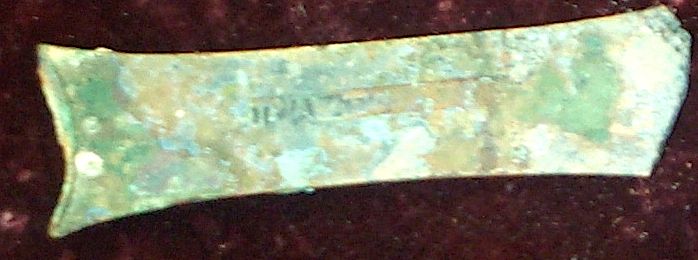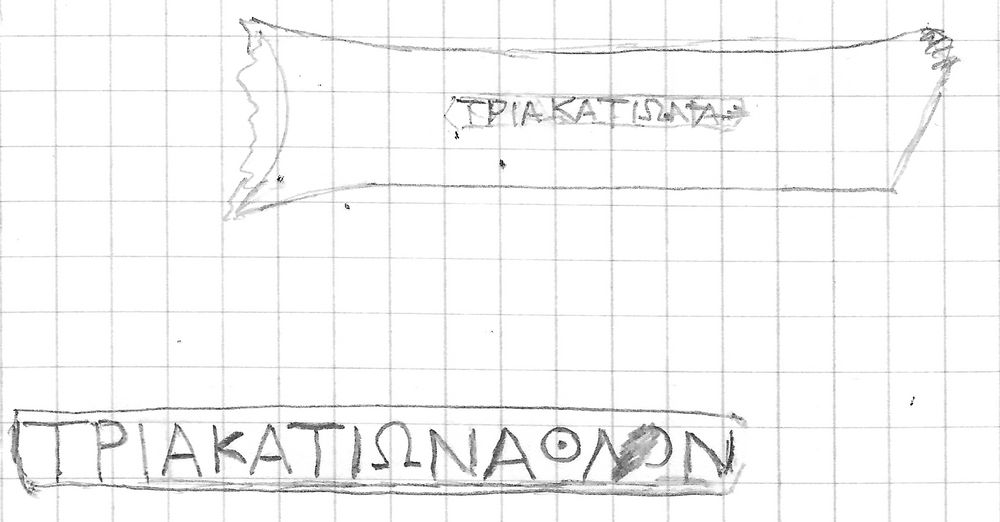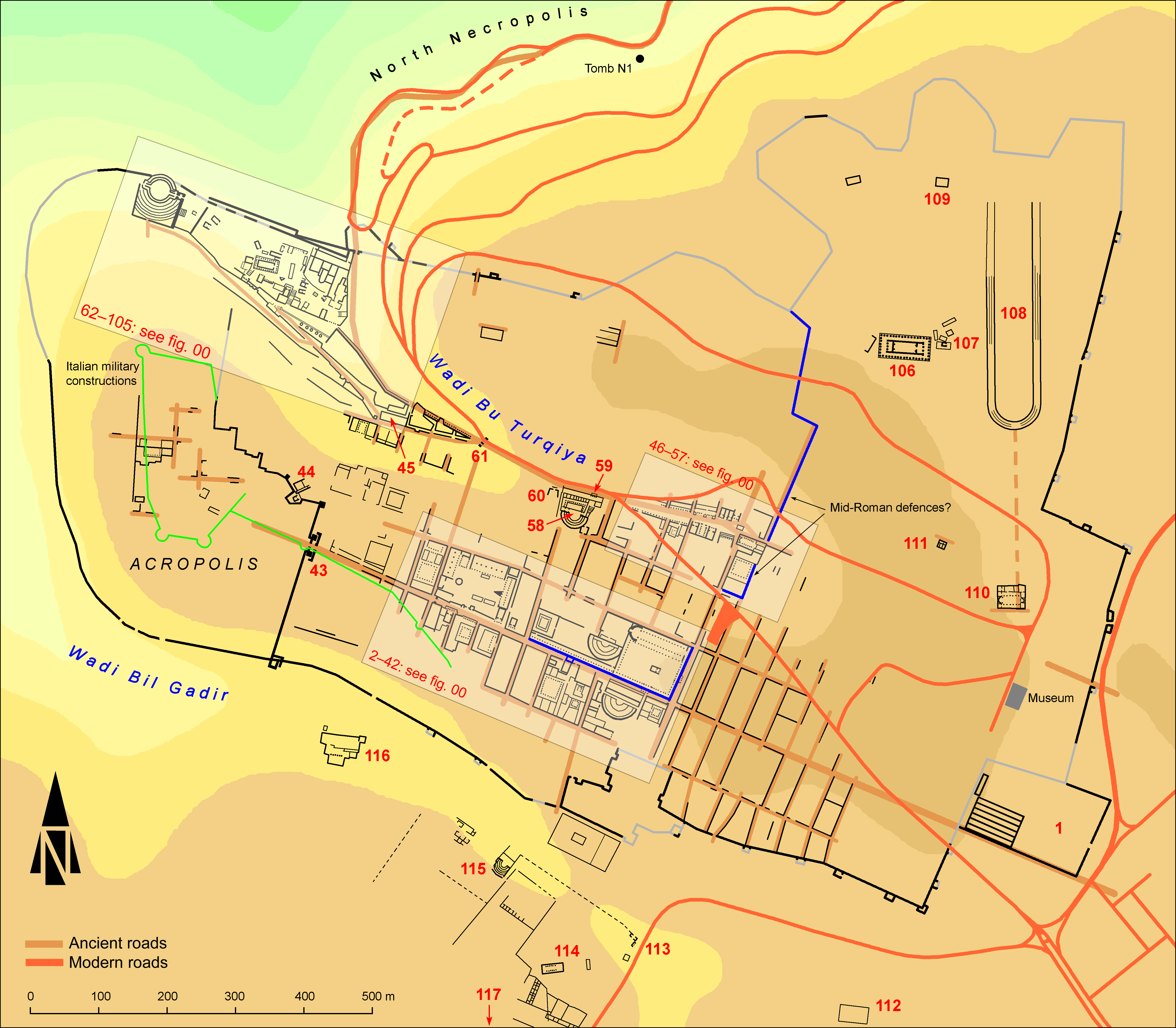EpiDoc XML:
IGCyr1139002
Trismegistos ID:
738692
Source description
Support: Bronze strigil handle, broken along the edge of the spoon and at the opposite end (w: 0.09 × h: 0.019-0.024 × d: 0.02-0.025).
Layout: Stamped in a rectangular area (w: 0.037 × h: 0.003).
Letters: 0.002; small dotted theta, slightly larger omicron and omega, all three circular letters somehow higer on the lines, symmetrical nu.
Date: 330-300 BC (lettering).
Findspot: Found by G. Dennis between 1864 and 1866 probably at Cyrene ➚: exact findspot unrecorded.
Place of origin: Findspot.
Last recorded location: British Museum, GR 1866.4-15.233. Observed by C. Dobias-Lalou in London: British Museum.
Text constituted from: Transcription from object (CDL).
Bibliography
Newton 1873; Walters 1899, p. 49, n. 326; Dobias-Lalou 2010, (with ph.), whence SEG, 60.1842; IGCyr 113900 ➚.
Text
French translation
Récompense des triakatioi (i.e. éphèbes).
English translation
Award of the triakatioi (i.e. ephebes).
Italian translation
Ricompensa dei triakatioi (i.e. efebi).
Arabic translation
جائزة الترياكاتيوي (إفيبس).
Commentary
The provenance of the strigil is not quite sure: Dennis brought to England objects from cemeteries of Euesperides, Cyrene, Taucheira and Ptolemais. However, the local name of the ephebes, τριακάτιοι, being up to now attested for Cyrene only, it seems most likely that the strigil came from the main city of the Pentapolis where strigils are mentioned in IGCyr1007002.
CC BY-NC-SA 4.0 Deed Attribution-NonCommercial-ShareAlike 4.0 International License.
All citation, reuse or distribution of this work must contain a link back to DOI: https://doi.org/10.60760/unibo/igcyrgvcyr2 and the filename (IGCyr000000 or GVCyr000), as well as the year of consultation.


